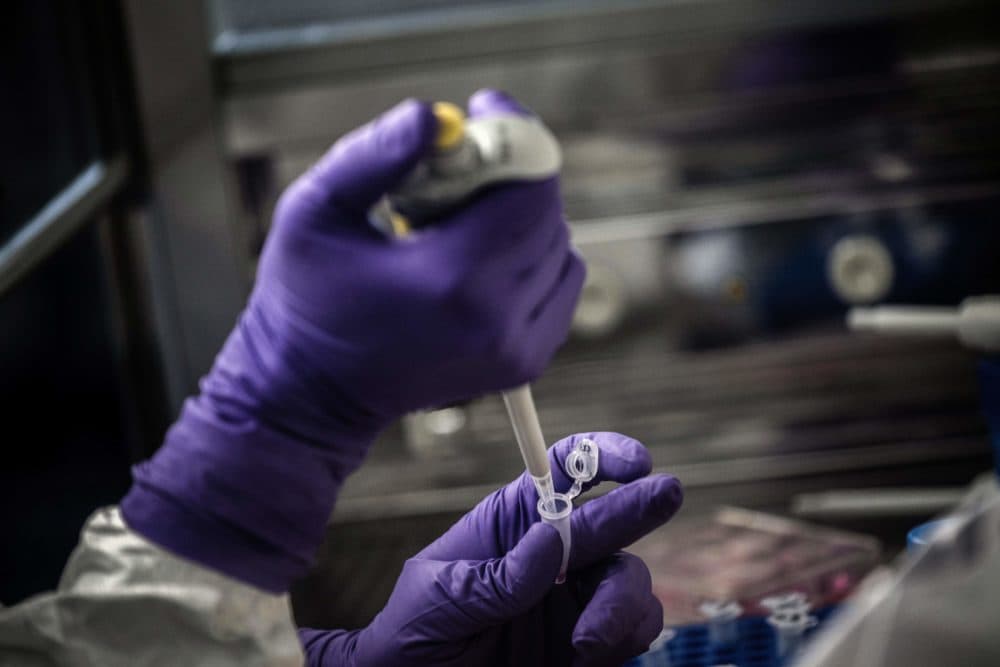Advertisement
'The Race Is Against The Virus And The Epidemic,' Says Vaccine Researcher
Resume
The first human clinical trial of a coronavirus vaccine begins Monday in the U.S.
The trial reportedly includes 45 healthy volunteers at the Kaiser Permanente Research Institute in Seattle, a government official told the AP. The vaccine was funded by the National Institutes of Health and co-developed by the biotechnology company Moderna.
But researchers say that it will take months before scientists know if this vaccine — and others that are currently in development — will work. It’s also important for researchers to collaborate to bring multiple different vaccines to trial, says Dr. Dan Barouch, director of the Center for Virology and Vaccine Research at Beth Israel Deaconess Medical Center in Boston.
“The race is against the virus and the epidemic,” he says. “In fact, the parallel development of multiple vaccines against the coronavirus is really essential because at this point in time, we do not know which vaccines will prove the safest, the most effective, the most durable and also the most deployable.”
Scientists are researching possible vaccines using the genetic sequence of coronavirus, which the Chinese government made public in January. Barouch says his team began working on a gene-based vaccine immediately after the sequence was released.
“We take just a piece of the virus — DNA or RNA — and we use that as a vaccine,” he says. “This is different than traditional vaccine methods, which would use the entire virus as the vaccine.”
This process means researchers can conduct vaccines much quicker than they used to be able to, Barouch says. Scientists also have at their disposal several classes of vaccines that were developed in the past 50 years.
“There is no way that we could have moved so quickly in the development of a coronavirus vaccine if it wasn't for the fact that we have developed these platform technologies for other pathogens in the past, such as HIV and Zika,” he says. “But nevertheless, there's a huge sense of urgency amongst everyone in the lab who's working on this — long days, no weekends — to try to move things forward even just a little bit faster.”
The genetic sequences for traditional viruses like coronavirus or Zika are also “relatively homogeneous, so we have a much clearer target,” than the genetic sequences for HIV, he says.
While scientists are prepared for adverse effects, they are “relatively sure that the vaccines will be safe,” Barouch says. Rather than cause harm, it’s more likely that a vaccine will just not work.
Scientists can’t predict when a vaccine to protect against the new coronavirus will be ready, Barouch says. Even after a clinical trial is completed, a lot of work needs to be done before doses can be manufactured and deployed to the public.
“There is a possibility that such a vaccine will be needed to end the epidemic,” Barouch says. “However, if the epidemic resolves through public health measures, which of course, is what we would hope, a vaccine would still be very useful for the next epidemic or a future epidemic.”
Karyn Miller-Medzon produced and edited this interview for broadcast with Kathleen McKenna. Samantha Raphelson adapted it for the web.
This segment aired on March 16, 2020.

